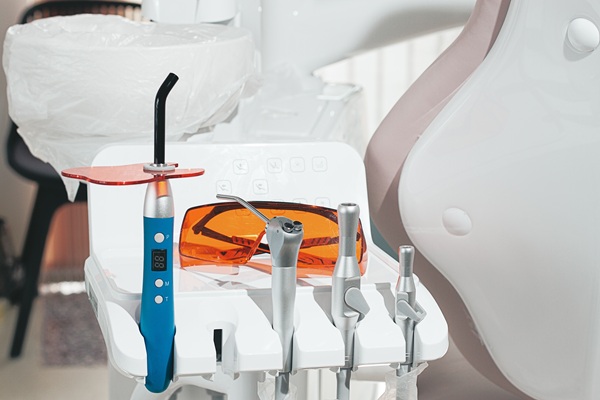 Biannual dental cleanings are generally enough to maintain oral health when the gum and bone tissues supporting the teeth are in good condition. However, if plaque, tartar, or bacteria have accumulated along the gumline, it could mean that periodontal disease has affected the gums and jawbone, which can be detrimental to your oral and overall health. To clear the buildup and keep the problem from worsening, you will need a more thorough cleaning done annually.
Biannual dental cleanings are generally enough to maintain oral health when the gum and bone tissues supporting the teeth are in good condition. However, if plaque, tartar, or bacteria have accumulated along the gumline, it could mean that periodontal disease has affected the gums and jawbone, which can be detrimental to your oral and overall health. To clear the buildup and keep the problem from worsening, you will need a more thorough cleaning done annually.
Biannual dental cleanings
For patients who have not experienced periodontal disease or gum disease in the past, routine dental cleanings are the norm. Dentists call the process "prophy" in the office, which is short for "prophylaxis." The term "prophylaxis" refers to disease prevention. These routine cleanings are done in dentistry to prevent tooth decay and gum disease.
Prophylaxis cleanings are in a patient's regular dental visits, which are normally biannual or six months apart. It entails brushing off the calculus, which is a mineralized plaque deposit. Plaques harden into tartar if not completely cleaned regularly by brushing, flossing, or any other oral hygiene steps such as water picking, proxy brushing, tooth picking, and so on. Once plaque has turned into calculus, it is not easy to clean at home.
Dentists usually use specialized calculus removal techniques such as ultrasonic scalers and other types of hand scalers. Calculus, plaque, and stains will then be dissolved by polishing with an abrasive paste applied to a special polisher. Floss is then used to apply abrasive pastes between the teeth. Fluoride treatment can be done upon a patient's request to strengthen the enamel against tooth decay. Sealants are also sometimes used as well.
Annual deep dental cleaning
Scaling and root planing are other terms for deep cleaning, which is a more thorough cleaning done annually that is done when the dentist discovers signs of gum disease. A deep dental cleaning entails scaling plaque and tartar away from tooth surfaces and at the gum line, much like a normal cleaning. However, to reach the buildups below the gumline, the scaling must go further below the gums.
Root planing is the key distinction between a daily cleaning and a deep cleaning. This procedure entails cleaning any tartar accumulation away from the teeth roots, together with the buildup on the teeth. When gum disease progresses, the gums begin to separate from the tooth, reducing support and allowing more bacteria to multiply. During this operation, the dentist will be very careful to ensure that the pocket is properly cleaned. Otherwise, plaque and bacteria will begin to accumulate again soon after the cleaning.
In conclusion
You can do everything possible to eliminate the need for deep dental cleaning. Good home oral hygiene routines can help deter gum disease from progressing to the point where root scaling is needed and minimize the pain associated with frequent dental cleanings. Make sure you brush your teeth thoroughly twice a day. Take the time to brush each tooth at the gum line. It is also advisable to floss every day to eliminate food debris from between the teeth and gum line.
Request an appointment or call Luvic Advanced Dentistry Aventura at 305-677-0553 for an appointment in our Aventura office.
Related Posts
Bad breath is a far more common issue than many people realize. Simply because someone does not notice their own bad breath does not mean it is not an issue. The good news is that bad breath is relatively easy to treat and prevent long-term in many cases. One of the best ways to treat…
Professional dental cleaning has several preventative and corrective benefits. Dentists use these periodic checkups to monitor the oral health of their patients. They also use the opportunity to correct small dental problems.Most importantly, dentists use routine dental visits to promote and foster good oral habits in their patients. These are just a few of the…
Visiting the dental office for checkups and dental cleaning can be inconvenient. However, cleaning appointments are an important investment. Read on to learn about why dental cleanings are necessary. It can be useful to know why teeth cleanings are important for those who do not think much about the cleaning process. The dental professional can…


